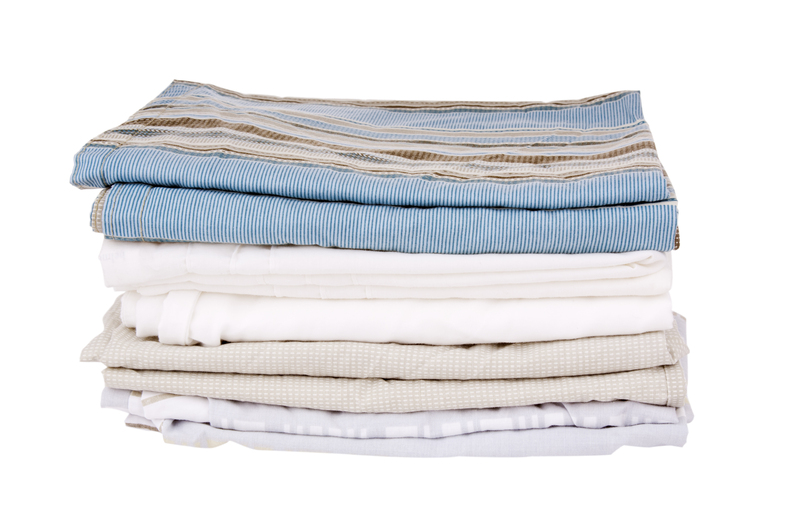Avoid Overpaying for Bulky Waste Items Removal with These Ideas
Bulky waste items removal can often become a significant expense for homeowners, renters, landlords, and businesses alike. With an increasing focus on sustainability, responsible waste disposal, and frugal living, it's vital to discover clever solutions that help you avoid overpaying for the disposal of large and unwieldy household or commercial items. Bulky waste removal doesn't have to break the bank, especially when you're aware of the right tips and tricks.
Understanding Bulky Waste Items Removal
Bulky waste items, also known as bulky rubbish, refer to objects that are too large or heavy to be disposed of using regular garbage collection services. Common examples include old furniture, mattresses, kitchen appliances, garden waste, electronics, carpets, and more. Because these things can't simply be dropped in a regular trash bin, their removal often necessitates special arrangements, which can sometimes lead to overpaying for bulky waste removal services.
- Furniture: Sofas, wardrobes, tables, chairs, beds, and armchairs
- Appliances: Washing machines, fridges, freezers, ovens, microwaves
- Electronics: Old TVs, computers, printers, monitors
- Outdoor Items: Barbecues, garden furniture, swings, paddling pools
- Renovation Waste: Carpets, bathtubs, toilets, sinks, doors
Why is the removal of bulk waste often expensive? Factors include labor costs, landfill fees, environmental charges, and sometimes a premium added for handling and transport.

Smart Strategies to Avoid Overpaying for Bulky Waste Removal
If you want to save money on bulky waste collection and avoid paying more than necessary, you'll need to be both strategic and a little creative. Let's explore some effective methods for handling your hefty rubbish without straining your wallet.
1. Take Advantage of Local Council Collection Services
Many municipalities and councils offer residents scheduled bulky item pick-up services--sometimes entirely for free or for a nominal fee. While there may be restrictions on how often or how many items you can place out, this remains one of the top ways to avoid overpaying for large waste disposal.
- Check your council's website for collection dates and rules
- Book online in advance, since these slots can fill quickly
- Prepare items according to instructions (e.g., placing them on the curb, separated by material type)
- Use permitted free collections wisely--combine items where possible
Tip: If you live in a shared building or complex, consider coordinating with neighbors to book joint collections!
2. Donate Usable Items to Charity or Community Groups
Don't pay to dispose of items that still have life in them! Many charities, non-profits, and community organizations will collect large items like beds, sofas, and white goods for free bulky item removal, then repair, upcycle, or pass them on to those in need.
- Contact local charities to find out what items they'll accept
- Arrange a collection time for larger items (many will pick up at no charge)
- Use "Freecycle", Facebook Marketplace, or local community boards to give items away for free
Not only do you save on removal, but you help the community and the planet by reducing waste.
3. Sell or Give Away Bulky Items Online
Before booking a professional collection service, try listing your unwanted bulky items online. Platforms like Gumtree, Craigslist, eBay, or local apps are teeming with users looking for bargains or free stuff. Even worn or semi-functional items can often find takers eager to collect for parts or refurbishment.
- Take clear photos and write fair, honest descriptions
- Mark items as "collection only" to ensure buyers arrange transport
- Price your items to move; even a small fee can offset other moving expenses
Bonus: A quick sale or giveaway usually means quicker removal, freeing up your space without delay!
4. Use Local Recycling Centers or Transfer Stations
If you have access to a vehicle and can enlist a helper, transporting your bulky waste to the local recycling facility can provide significant savings. Municipal "tips" or transfer stations often accept household bulk waste for low or no fees (especially for residents).
- Check which items are eligible for drop-off (some charge only for specific materials)
- Break down large objects to maximise car space and possibly avoid extra charges
- Separate items by material type for proper recycling (wood, metals, electronics)
Environmental bonus: Recyclable items are diverted from landfill!
5. Share Costs Through Community Bulk Collection
If you're not eligible for a free or municipal bulky item collection, consider teaming up with neighbors, friends, or nearby businesses to organise a private group collection. Professional waste disposal companies often charge by vehicle load--splitting a full truck is cheaper per person than hiring individual services.
- Organise a "bulky waste day" in your street, building, or close-knit community
- Get quotes from local waste removal companies for the whole load
- Divide costs evenly amongst participants
This method is particularly effective in apartment blocks or communities with frequent turnover.
6. Be Proactive: Avoid Creating Bulky Waste in the First Place
The most effective (and least expensive) method of bulky waste management is prevention. Consider these eco-friendly strategies to limit your future disposal needs:
- Buy durable, quality items that last longer
- Opt for modular or flat-pack furniture that's easy to replace or upgrade
- Repair or refurbish existing items instead of discarding
- Rent or borrow tools and appliances for one-off projects
Mindful consumption can help you avoid frequent future trips to the dump and unnecessary spending.
7. Understand What's Included in Professional Bulky Item Removal Quotes
Not all waste disposal companies charge the same way. Before hiring a bulky waste removal service, scrutinize the quote:
- Are weights, volume, or time-limits part of the fee?
- Does the quote include VAT, environmental fees, or potential surcharges?
- Are special items (e.g., fridges, hazardous materials) extra?
- Does "collection" mean items will be carried out from inside, or must you bring them to the curb?
Get several quotes, compare exactly what's offered, and look for any hidden charges. Never be afraid to negotiate or ask for price matching!
More Proven Tips to Spend Less on Bulky Waste Disposal
Disassemble Large Items Yourself
Most companies charge based on volume; a king-sized bed frame, for instance, eats up much more truck space when assembled. By breaking down large or awkward items yourself, you can fit more in each load and reduce costs.
- Remove sofa legs, doors from cabinets, and take apart bed frames
- Bundle materials (wood, metal) for easier recycling and handling
- Follow safety precautions: wear gloves, eye protection, and use the right tools
Time Your Disposal Wisely
Just like moving house, demand for bulky waste disposal peaks at certain times of year--just after holidays, at university terms, or during home renovation booms. Schedule your disposal just before peak periods for better deals and more availability.
- Ask companies if off-peak discounts are available
- Book in advance to lock in lower rates
Watch for Promotions and Loyalty Discounts
Some waste removal businesses offer first-time customer discounts, seasonal promotions, or loyalty programs. Ask about:
- Referral bonuses for friends or neighbors you enlist
- Discounts for repeat business or bundled waste types
- Student, disabled, or OAP (senior) rates
Avoid Fines and Fly-tipping Risks
Attempting to cut corners by using unlicensed removers, or worse, dumping bulky waste illegally ("fly-tipping"), can result in hefty fines and even criminal charges. Always use a reputable, licensed waste carrier and ask for a waste transfer note or proof of disposal.
- Check credentials online at your local council or national waste registry
- Keep documentation in case there is an investigation
Saving money is important--but so is protecting your reputation and the environment.
The Environmental Benefits of Responsible Bulky Waste Management
Efficient and responsible removal of bulky waste items is more than just a way to avoid overpaying. Every year, millions of tons of large household waste are sent to landfill, much of which could have been reused, recycled, or refurbished. By using smart strategies outlined in this article, you aren't just saving money--you're also:
- Reducing landfill waste and conserving valuable land
- Lowering carbon footprint by extending the life of usable items
- Supporting local economies via charities and upcyclers
- Building community connections through shared removal efforts
By making informed choices, you turn bulky item disposal from a costly hassle into a contribution to a greener and more generous society.

Frequently Asked Questions About Bulky Waste Removal Costs
How much does it usually cost to remove a bulky item?
Prices vary based on location, item, and the provider. Council collections may be free or as low as ?10-?30 per item. Private services can start from ?50-?100 per load, but increase with volume, time, and special items (e.g., white goods).
What bulky items do councils usually collect?
Most accept furniture, electrical appliances (not always fridges), mattresses, garden equipment, and carpets. Restrictions often exist for building materials, automotive parts, hazardous waste, and very large items (like pianos).
Can I put out my bulky waste with regular trash?
No. Most regular waste services prohibit bulk items, and placing them out improperly risks fines or refusal of service.
What happens to my bulky items after removal?
Professional removers and councils increasingly recycle or donate as much as possible, diverting only what can't be reused to landfill.
In Summary: How to Avoid Overpaying for Bulky Waste Removal
With the right knowledge, avoiding high fees for bulky waste removal is entirely possible. To minimize your costs:
- Research and use local authority collection options wherever possible
- Donate or sell usable bulky goods via charities or online platforms
- Disassemble items and transport them to recycling centers yourself
- Share removal costs with neighbors or community groups
- Scrutinize professional service quotes and never pay for more than you need
Adopting these cost-effective bulky item removal ideas ensures you keep more money in your pocket while staying kind to the environment and your neighborhood. Remember: what's unwanted for you might be useful for someone else, and responsible disposal is always the best bargain!
Ready to save on your next bulky waste collection? Explore these ideas, and don't let bulky rubbish removal bust your budget ever again!
